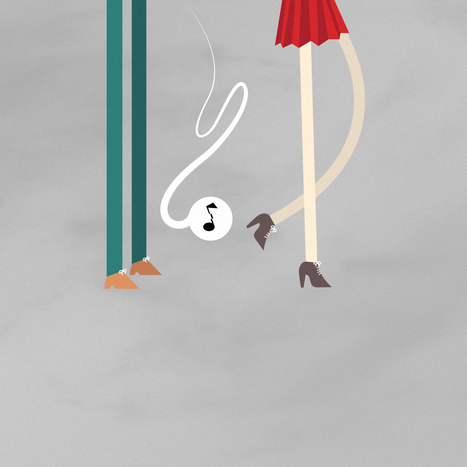
Sexism on Europe's streets: the unbearable heaviness of being
Published on
From Paris to Warsaw, whether clad in tracksuits and caps or suited and booted, the catcallers of the streets know no limits. Never at a loss for some new line, they never cease to amaze us – and not in a good way. A panoramic view of catcallers around Europe
FRANCE: Les relous des rues
''Hey, you wanna see my pussy?" On the Tumblr page hé mademoiseau, imaginative girls invent bawdy replicas of the catcalls that they meet on the streets on a daily basis. They are imaginative, but also tired, and sick of having to deal with constant harassment because they have committed the enormous offense of having being born with two X chromosomes. They are tired of comments such as "Hey miss, you're hot, do you suck?"; they are tired of warding off groping hands on the subway. Paris is not quite the city of love it is made out to be. The capital is full of catcallers ('les relous des rues') with wandering hands and overgrown senses of entitlement who have the power to cast a pall over the most rose-coloured day. Websites such as paye ta shnek and vie de meuf ("life of a chick") identify the best of the worst of these 'seduction attempts' in urban areas. For those who wish to mobilise outside the virtual world, the collective 'rage night' ('rage de nuit') organises night marches every six months for women to reclaim the streets.
Morgane, France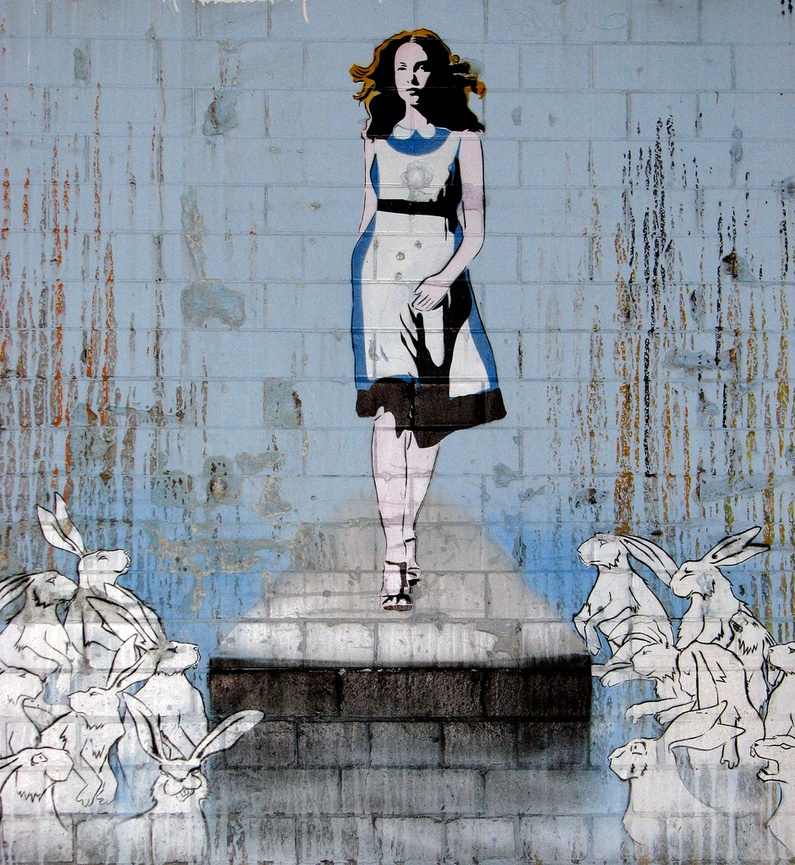
ITALY: Ciao Belissima
''It's incredible: even when they are hand in hand with their girlfriends, Italian guys on the street will nonetheless look you up and down and seem to only just manage to refrain from whistling at you." This is what one Spanish friend discovered, having recently returned from a trip to Rome. The young Basque girl was oddly fascinated by the ardour and the ease with which self-styled studs delivered the 'compliment' in the streets of the Bel Paese. Yes, it seems almost to be a mark of honour amongst Italian guys to inform the unfortunate (who immediately regret their choice of route home) of how sexy they are, and to suggest activities which they could do together. There is nothing as innocent as a walk in the park. These incorrigible casanovas lack the elegance of the infamous historical figure, and are particularly inventive when it comes to lascivious comments, making suggestive invitations that transform into crude sexual insults with one wrong glance.
Valeria, Italy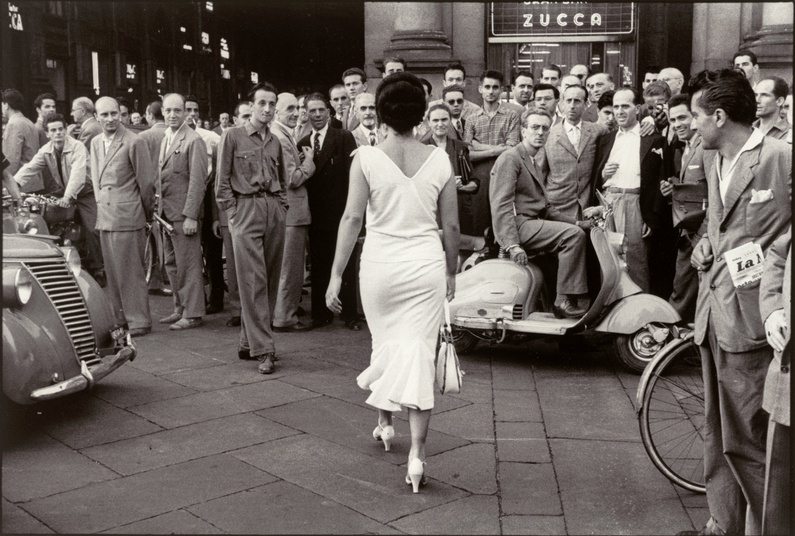
POLAND: Made in heaven
Fortunately, attempts at seduction on the streets of Warsaw are as often endearingly awkward as they are rude and misogynistic. Men attempt to rival one another in wit and imagination in their quest to conquer the hearts of Polish girls. A pretty girl in the streets of Warsaw may hear small gems like: "Is your name google? Because you have everything I'm looking for," or: "Do you have a dictionary? Because words fail me, you're so beautiful."
However, this doesn't mean one never stumbles upon wannabes and mediocrities, with lines such as "Ooh, I can see the label of your shirt. It says 'made in heaven'." At least once rejected Polish guys take the hint and leave the girl alone.
Katarzyna, Poland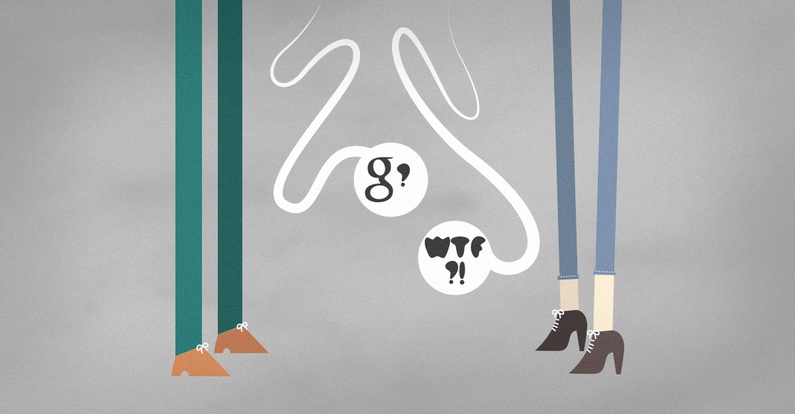
SPAIN : Machismo 1; Poetry 0
In Spain, the tradition of 'piropo' is being lost. This is a courtly compliment intended to attract the attention of the object of one's desire. The word comes from the Greek pyros, meaning 'fire', the verbal equivalent perhaps of a lover setting off fireworks as his sweetheart passes. Spanish guys have long played the noblemen in courting, yet the piropo should be handled with care. The problem arose when some people (don't look now) opened fire on anything in a skirt. The poetic piropo became dragged in the mud of machismo. The once gallant piropo has fallen upon hard times and we in Spain have forgotten now what it once meant. However, guys in traditionally Mediterranean and Arabic countries have not abandoned piropo, pun and hyperbole, and still ask girls "how does a star come to fly so low?" The pursuit of a beautiful girl is not in itself a bad thing. The piropo reminds us that gentlemen may treat women with respect, and that flirtation may be poetic rather than simply creepy.
Manu, Spain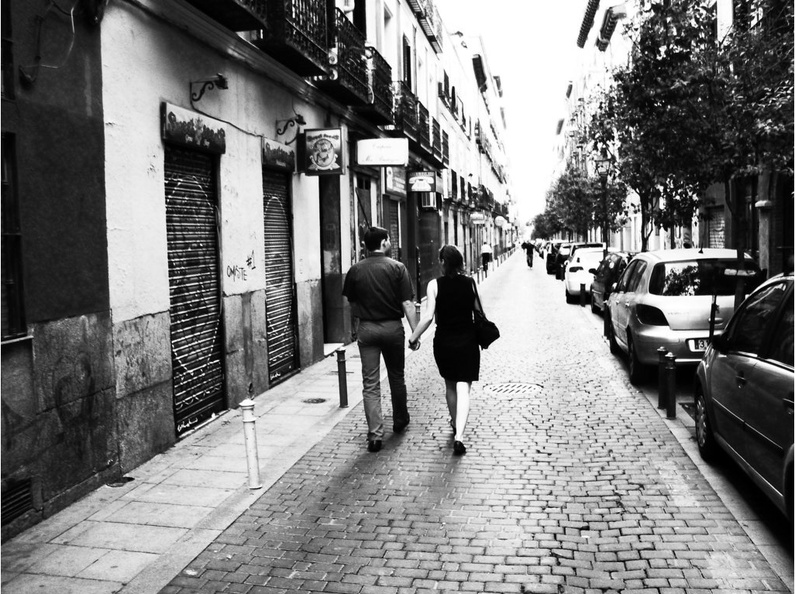
Germany: girls release their anger online
'From a boss talking to a female colleague about the length of his dick to the guy on the street who doubles back on his bike to touch the breasts of a passerby - in Germany, no holds are barred. However, German girls aren’t content to let such behaviour stand. They relate anecdotes about their experiences of everyday sexism on the eponymouse site, alltagssexismus.de. The site was launched in 2013 following the controversy '#outcry' ('#aufschrei') surrounding the sexist behaviour of liberal party member Rainer Brüderle in February, and the public backlash towards the young journalist Laura Himmelreich who dared to denounce his behaviour towards her. (But what was she doing there alone at the bar?) After an avalanche of tweets and a prestigious online journalism award for this hashtag, the debate about everyday sexism returned to German society in 2013.'
Katharina, Germany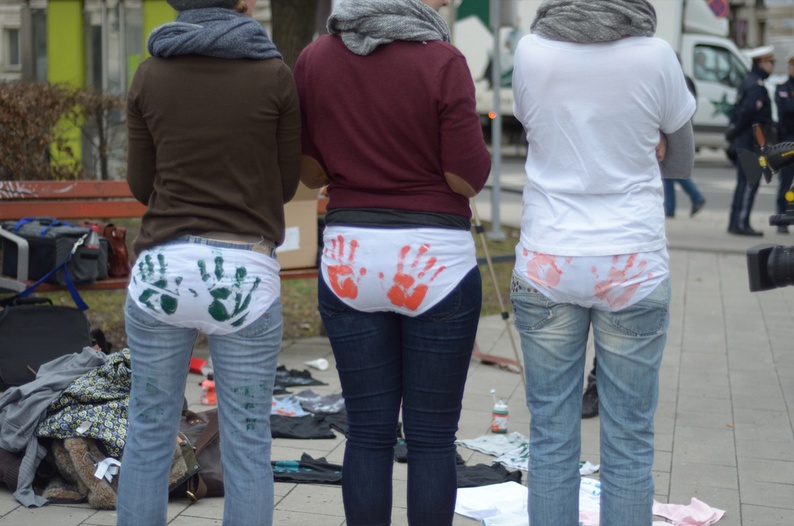
UK: offline sexism overshadowed by online threats
'The UK's confrontation with misogyny is at a peak right now, with sexual harrassment and objectification being an issue both on and off the streets. Sexist double standards are evident in the media, who have recently come under fire for widespread and vitriolic ‘slut-shaming’. X-factor television personality Simon Cowell is having a baby with a married woman, and she has been subjected to an onslaught of media harrassment and derogatory labelling. She is not alone. Meanwhile, the Child Eyes group is campaigning for supermarkets to cover the nude and provocative images of women on lad's magazines with modesty bags, and the No More Page 3 campaign is fighting to take the bare breasts out of The Sun, a family newspaper.
 Railing against the quotidian expeience of misogyny, the Everyday Sexism project, created in 2012, allows women to post their experiences online. Such has been the campaign's impact that now major newspapers collaborate with the portal to run live sessions raising awareness about sexism in daily life.
Railing against the quotidian expeience of misogyny, the Everyday Sexism project, created in 2012, allows women to post their experiences online. Such has been the campaign's impact that now major newspapers collaborate with the portal to run live sessions raising awareness about sexism in daily life.
However, there are risks to women who attempt publicly to tackle the sexist institutions and beliefs which have become ingrained into British culture. The founder of the Everyday Sexism project received a bomb threat and in the aftermath internet trolls moved to threaten the lives also of several other women in the public eye - journalists India Knight, Laurie Penny, MP Stella Creasy, historian Mary Beard and incredibly, the writer Caroline Criado-Perez who was targetted with rape threats after spearheading a successful campain to get the only woman back on the UK's banknotes (Jane Austen in 2015). Meanwhile in Brooklyn, USA, one public artist released this street art campaign against street harrassment.
Nabeelah, UK
Translated from L'insoutenable lourdeur de l'être



